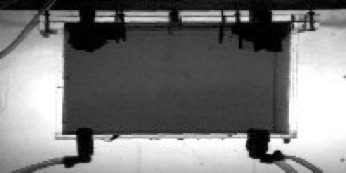Sustainable Ventilation

With the ever growing awareness for a need to protect the environment it has become increasingly important to find ways to reduce the rapidly growing global energy consumption. About one third of the world’s energy is used by building services, of which a significant portion is expended on ventilation. A better understanding of ventilation is necessary in order to design and operate more efficient ventilation systems. Knowledge of the manner in which air mixes within buildings is key to the design of better control systems and ventilation schemes can be designed.
We develop and extend simple analytical models that idealise natural and low-energy ventilation systems as closed spaces (that can be coupled to the external ambient) containing heat sources. These models can be used to predict temperature distributions as well general average flow patterns. In our work we have focused on the influence of transient heat sources.
Using the analytical flow patterns we extend these models to account for the transport of contaminants, both passive and particulate (which suffer gravitational settling).
In order to test we ran a series of numerical models and laboratory scale experiments. A photograph of the experimental tank is shown below. Some of the results are displayed in the movie below. The movie on the left portrays the average concentration predicted by our theoretical model in a space initially uniformaly filled with a contaminant where fresh clean air is then introduced. On the right hand side are the results from laboratory experiments.
Relevant Papers
Bolster D., Linden P.F. (2009)
" Particle Transport in Low Energy Ventilation Systems. Part 2: Transients and Experiments "
Indoor Air , 19, 130-144
Bolster D., Linden P.F. (2009)
" Particle Transport in Low Energy Ventilation Systems. Part 1: Theory of Steady States "
Indoor Air , 19, 122-129
Bolster D., Linden P.F. (2008)
"Transients in natural ventilation - Sudden Changes in Heat Loading"
Energy and Buildings Vol 20, 2099-2110
Bolster D., Tartakovsky D.M. (2008)
"Probabilistic Risk Analysis of Contamination in Buildings"
Indoor Air Vol 18, 351-356
Bolster D., Caulfield C.P. (2008)
"Transients in natural ventilation - A time-periodically-varying source"
Building Services Engineering Research and Technnology - Vol 29, 119-135
Bolster D., Linden P.F. (2007)
"Contaminants in Ventilated Filling Boxes"
Journal of Fluid Mechanics - Vol. 591 , 97 - 116
